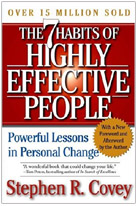By Carrie Perrien Smith
Ask anyone that you know who produces great results and you will find a common thread in the fabric of their success — the ability to set and meet goals. As I’ve seen in my life with amazing frequency, goals are miracles simply waiting to happen.
Here are key elements to use in your goal-setting strategy:
 Define your purpose. Start by exploring your purpose on earth. Once you know why you’re here, write goals that support that purpose. Success is the casualty of professional or personal goals that don’t line up.
Define your purpose. Start by exploring your purpose on earth. Once you know why you’re here, write goals that support that purpose. Success is the casualty of professional or personal goals that don’t line up.
For example, a father may believe that his purpose is to be a parent who actively participates in his children’s school activities. Both personal and professional goals must support that purpose. If his professional goals include advancing into a position that requires extensive travel, he’ll find it difficult to achieve all his goals.
Understand your values and personal mission. Make a list of those things that are important to you and the maintenance of a healthy lifestyle. Write a mission statement that describes what you feel called to do with the precious time you’ve been given on earth. Goal-setters can get caught up in their long-term goals but fail to take advantage of today. Every single day is a gift and we must focus on those things that line up with our personal values and mission.
The late Ray Pelletier, a speaker and master consultant, recommended writing a mission statement for every task you tackle right down to individual business calls. Simply put, he wrote down his goal for each task so that he met his objective.
 Write goals for both personal and professional areas of your life. Professional goals may include job promotion or change, training, or productivity. If you own a business, you’ll want to look at marketing, productivity, growth, or product development goals. Personal goals may include fitness, family, education, and financial goals. Many people fail in life because they don’t set goals that relate to their family life. Who you are in your personal life is vitally important because it creates the foundation for who you are as a professional. One of the most important legacies we leave is how we live our personal lives.
Write goals for both personal and professional areas of your life. Professional goals may include job promotion or change, training, or productivity. If you own a business, you’ll want to look at marketing, productivity, growth, or product development goals. Personal goals may include fitness, family, education, and financial goals. Many people fail in life because they don’t set goals that relate to their family life. Who you are in your personal life is vitally important because it creates the foundation for who you are as a professional. One of the most important legacies we leave is how we live our personal lives.
While you want to focus the destination (or “begin with the end in mind” as Stephen Covey suggests in Seven Habits of Highly Effective People), goals are really more about attaining the right tools and preparing for the journey. It’s more difficult to make a trip to somewhere you’ve never been without a map or transportation.
Use the right words. Use action verbs — lots of them.
Include components that ensure success. Use the SMART model for structuring your goals. Make them Specific, Measurable, Achievable, Realistic, and Time-bound to a deadline. Tony Robbins, motivational speaker and business coach, says we need to have an RPM Plan: Know the RESULT you want, know your PURPOSE, and compose a MASSIVE ACTION plan.
Find an accountability partner. You probably have a long list of people who would gladly stand in line to hold you accountable. Sharing your goals with other people means that they can ask you about your progress occasionally so they can encourage you. You also feel like you let them down if you haven’t made progress when they check in with you.
Write a variety of goals. Write some long-term goals (three to five years), mid-range goals (one to three years), and short-term goals (one year or less). Break this year’s goals down by quarters. Often, your short-term goals are steps to achieving your long-term goals.
Keep the number of goals realistic. Try to limit yourself to three to five goals in each category. Having too many goals dilutes your focus.
 Push beyond what you believe is achievable. Be willing to fail. You don’t meet goals that you don’t set. If you set a goal at 200% of what you believe is achievable, are you a failure if you only make 120% of the achievable goal? Of course not — you’re extraordinary! Beside, achievable goals are for sissies and you are definitely not a sissy.
Push beyond what you believe is achievable. Be willing to fail. You don’t meet goals that you don’t set. If you set a goal at 200% of what you believe is achievable, are you a failure if you only make 120% of the achievable goal? Of course not — you’re extraordinary! Beside, achievable goals are for sissies and you are definitely not a sissy.
Keep your goals out in front of you. Put them on your closet door or in other location that you visit at least once a day. If you are responsible for a company or organization, make sure you keep those goals in front of the whole organization. One of the most common reason goals are not achieved is that they are put in a nice notebook and filed away on a shelf and seldom reviewed.
I developed a worksheet to help you set your goals. Click here to download a worksheet that will help you set your goals.
Good luck! Slip away for a few hours to reflect on your life and set some goals. It could be the most important investment you make all year.
 Carrie Perrien Smith is mama to Darcie and a pack of black dogs (Speckles, Snappy, Jazmin, and Midgieboy — in pack order), grandma to Robert, wife to world-traveler and Walmart-blue-bleeding Tom, daughter to Wayne and Phyllis, speaker bureau and publishing company owner, community activist, and home improvement junkie. Follow her on Twitter @soarwitheagles or contact her at carrie@soarhigher.com.
Carrie Perrien Smith is mama to Darcie and a pack of black dogs (Speckles, Snappy, Jazmin, and Midgieboy — in pack order), grandma to Robert, wife to world-traveler and Walmart-blue-bleeding Tom, daughter to Wayne and Phyllis, speaker bureau and publishing company owner, community activist, and home improvement junkie. Follow her on Twitter @soarwitheagles or contact her at carrie@soarhigher.com.
